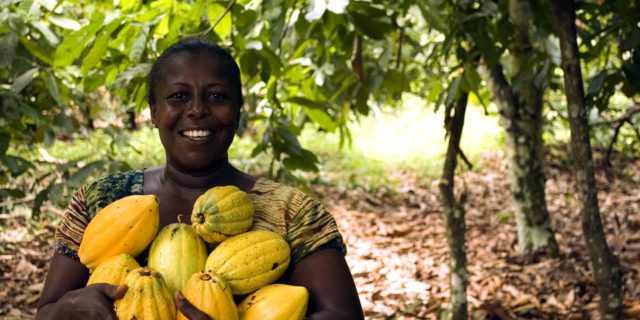
By
Georgette Nyankson
March 2021
Print Version
What you need to know
The Food and Agriculture Sector Development Policy (FASDEP II) is a holistic policy formulated in 2007 to foster sustainable use of all productive resources and commercialization of activities in the agricultural sector geared towards market-driven growth. The broad principles of the policy are to ensure that all sub-policies and programs are formulated from a gender perspective to enhance the government’s gender equality in the agricultural sector. In most cases, these principles are implementable in theory but are not successfully implemented in practice. My project examined whether this policy (FASDEP II) designed for implementation is gender-inclusive—particularly of women.
Why this research is important
Women play a significant role in Ghana’s agricultural sector, yet they often lack power in making decisions and creating policies in the agricultural sector. More research is needed to understand how rural women have been involved in policy-making, barriers to participation, and what can be done to improve participation. To address this gap, my research examined women’s involvement in decision-making in their homes, communities, and agriculture organizations to identify their barriers in any of these settings in decision-making; to know if women have power and resources to act on their decisions, and how those can inform their involvement in policy-making.
How the research was conducted
I employed a qualitative case study approach. My research made use of both secondary and primary data. The secondary data was collected from Ghana Statistical Service reports, the Ministry of Food and Agriculture websites, annual reports, municipal reports, and journal articles and books. Most of the information from secondary sources was related to agriculture in Ghana and some from developing countries. The primary data were sought through semi-structured interviews from farm women and agricultural stakeholders. Purposive sampling was used to select research participants. NVivo software was employed to manage raw data by organizing data into themes and creating codes to analyze the findings.
What the researcher found
In contrast to previous research, most women in the study were part of Farmer-Based Organizations (FBOs); however, most rural women faced barriers participating in decision-making at the Municipal Assembly level due to factors such as patriarchal culture, inadequate resources, organizational/representational barriers, and a low level of education.
Regarding the agriculture policy FASDEP II, specifically women faced similar barriers to participation as well as a lack of good communication about participation in policy-making. To enhance women’s participation in agricultural decisions and policy-making, the farm women and stakeholders in the study suggested more informal education, adequate resources for community consultation, and strengthening organizational structures as well as effective coordination and communication between government officials and rural farmers.
How this research can be used
My research provides recommendations that add to the existing literature and is useful for municipal assemblies, community leaders, and any feminist movement in Ghana. Results from the research can form the basis for further research needed to address the challenges from policy-makers’ points of view regarding the inclusion of women in policy-making.
About the Researcher
Keywords
- agriculture
- decision-making
- equity
- policy
- women
Editor: Christiane Ramsey
Read more BU Research
Research at Brandon University follows comprehensive policies designed to safeguard ethics, to ensure academic integrity, to protect human and animal welfare and to prevent conflicts of interest.

